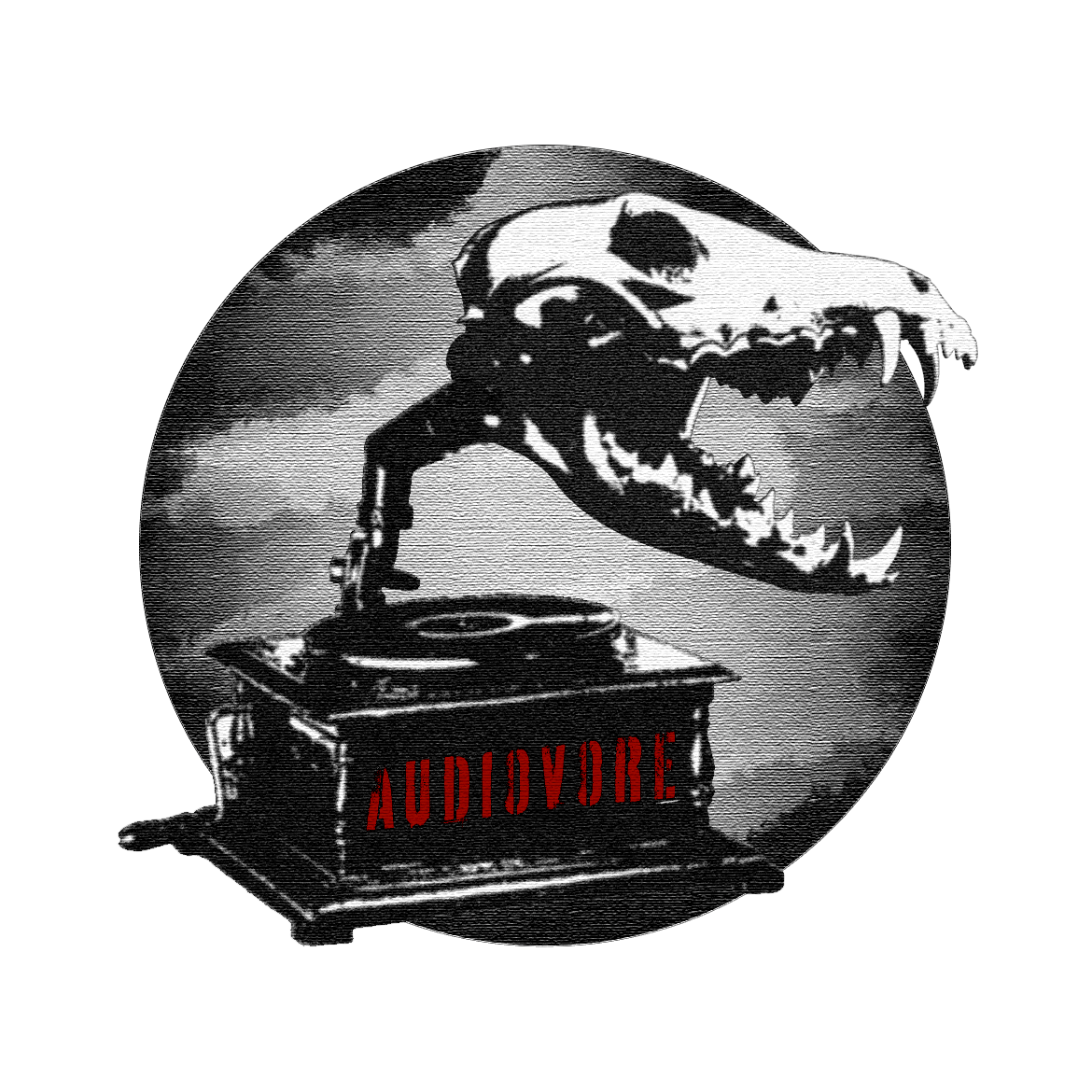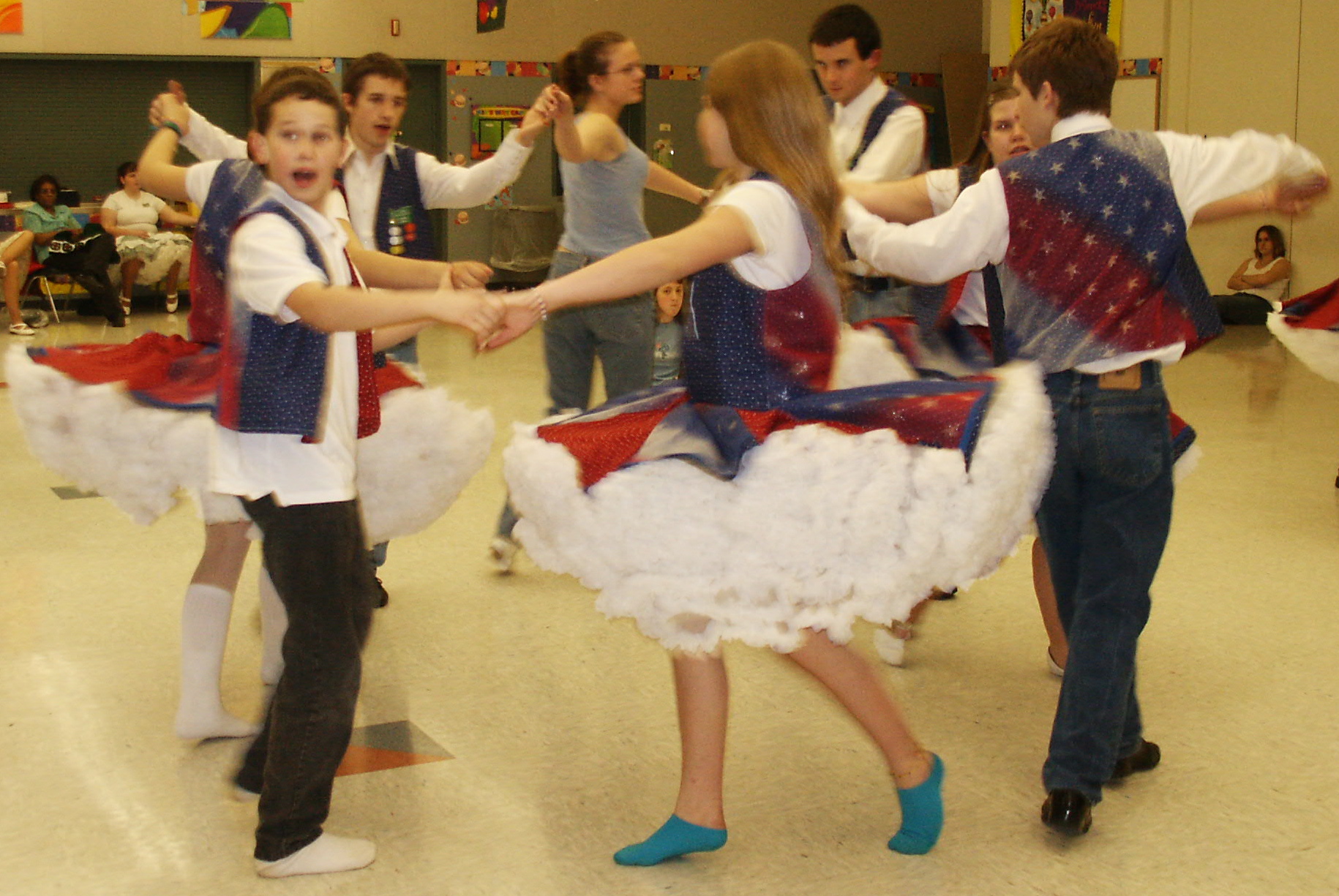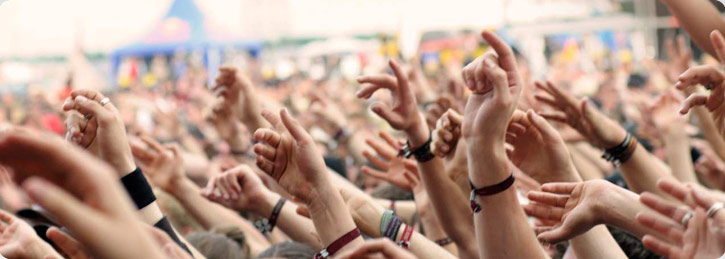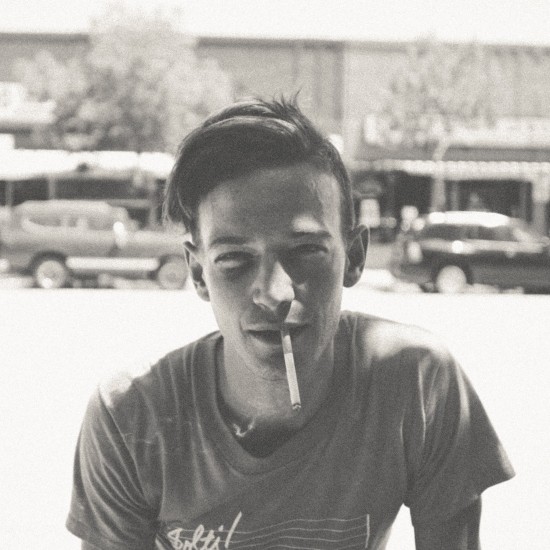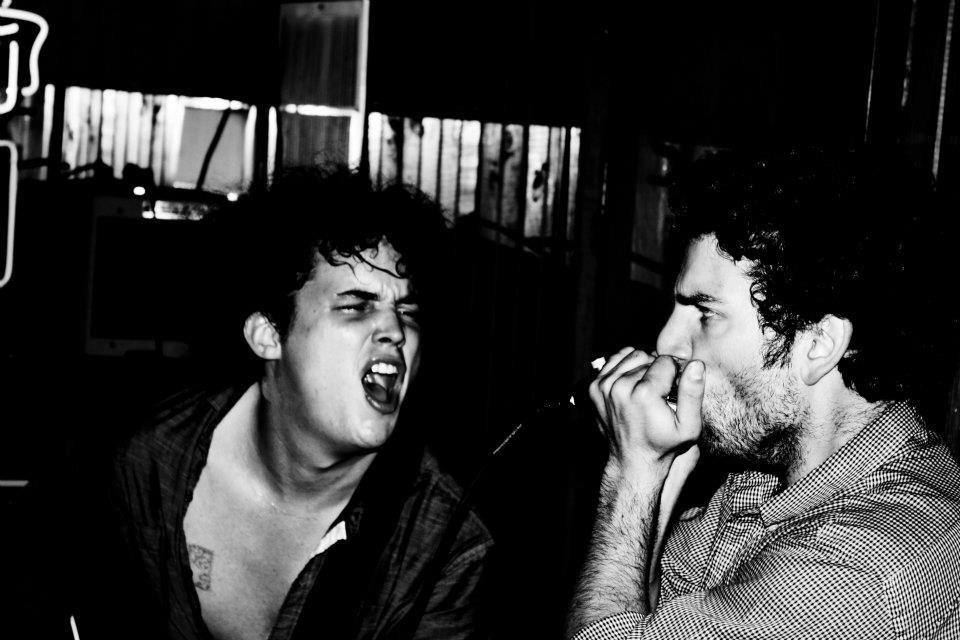There’s something beautiful about getting Adam Lerner, the director of the MCA Denver, to agree to an interview and then just asking him about Zoolander. It’s the type of absurdity that Adam seems to love. While he is a brilliant idea-man, churning out thoughts in the creative clouds, he’s also amazingly down to earth. During our chat, we found out that he might like Carly Rae Jepsen more than Glenn Campbell and is surprisingly easy to fluster. We also got to talk to him about Denver’s collective art scene, pick some diamonds from his brain and even have him plan out the next two seasons of our Don’t Look Down series all in one little session. Adam Lerner, what a guy.
Audiovore: Through the grapevine, we found out your parents were lovers of square dancing.
Adam Lerner: Oh yes, of course
AV: Tell us how that influenced your musical discovery and who you are as a person now.
AL: My family’s square dancing history is the stuff of legend. My father was a holocaust refugee who came to America as a teenager and who always said “I knew immediately I had a talent for square dance. He was divided between raising us as orthodox Jews and raising us as square dancers. They danced like, four nights a week. They even had a camper in a square dance campground, and we lived in Queens so it was not typical for people to be square dancers. I, personally, at the age of 9 was the youngest member of the Brooklyn Squares square dance club. It runs deep. How did it affect my taste in music? Well, my favorite song was Rhinestone Cowboy of course, by Glen Campbell as a kid. I’m not sure if that has any impact on my future musical taste but I’ve got to say that I always imagined myself, my ideal someday, is to be a rhinestone cowboy. I think I might be close; I might be getting there.
AV: Well you’re in Denver, you’re that close at least.
AL: (laughs) It’s true! And I recently won a best-dressed award in Denver so maybe.
AV: Do you still like Rhinestone Cowboy?
AL: You know, it’s funny. I hadn’t thought about it in a long time and I went back and downloaded it to my iPhone and listened to it a couple of times but, I can’t say I’ve listened to it again since then. So it doesn’t work it’s way into my rotation.
AV: So tell us about the events that the MCA presents to support the Denver music scene.
AL: The Denver music scene is really important to what we do at the museum. To me, the museum is never just a place to put things up on the wall or bring art and just have it in a gallery. That’s not how I think about the museum. We do put things on the wall and put things in the galleries but that’s only the starting point for what we do. Really, the museum is more of an engine for generating our creative energy and I think that energy is coming out in all different ways. It’s partly visual art but it’s also innovation in any area. I feel that the energy that we’re creating here at the MCA really fuses nicely with the energy in the Denver music scene and I want those two to work alongside. That’s why we have musical performances here, we’re not limited to visual arts in any way, and we’re about creativity more generally.
AV: Is the MCA rooftop the best rooftop in Denver?
AL: Yes, the best. It’s the best rooftop. I actually thought when we’re done with the Audiovore Don’t Look Down series we should do a Don’t Look Up series and we can have it in the fire lane. We also have the best fire lane in the city of Denver.
AV: That’d be incredible. You also have a giant elevator that you’ve had events in before, right?
AL: Yeah, we should call that Don’t Get Off. (laughs)
AV: You have the next three years just planned out!
AL: As long as we have things to just NOT do.
AV: Do you have a favorite art piece that’s up right now?
AL: That’s up right now? It’s like my children; I can’t talk about them like that. I could probably say what would be the most favorite work that I’ve exhibited in the course of my career?
AV: Yeah, let’s do that then.
AL: It was a guy that we showed at MCA Denver pretty soon after I came here. Achilles Risoli, and he basically did work in the 1930s, which is not at all contemporary, but it’s so amazing that I thought we had to show it. He was this architectural renderer and he created portraits of people as buildings. But the buildings were just buildings, they didn’t look anything like the person. It’s not like they, in any way, referenced the people but in his mind this is how people would look if they were buildings. He has such a pure spirit and in many ways he’s a true believer in art because he things that art has this power to capture someone’s celestial self, which has nothing to do with what they look like.
AV: How many hours do you spend at work each week?
AL: How many hours? Oh I don’t know, I spend tons of hours at work. If I had to guess I’d guess more hours than there even are in the week.
AV: How long have you been at the MCA?
AL: No comment (laughs)
AV: I didn’t mean today.
AL: Oh, right. Since 2009.
AV: What was it like to present at this year’s TEDxMileHigh conference?
AL: I have to say, I’ve defended my thesis at Cambridge University in front of these robe wearing Cambridge dons, I’ve defended my dissertation at Johns Hopkins University in front of a panel of distinguished professors and I have never been so terrified to give a talk as I had been when I gave my TEDx talk. I give public talks once a week and it was nothing like TEDx. That was like a performance and it was terrifying. It’s not just the number of people, there were like 2,000 people there, it was the fact that this was sort of my story that I always tell and it was also like a performance.
AV: It was good, we watched it online. We’ll have to link to it here in the transcription.
AL: Yeah, let people see just how nervous I was. I actually think, well, I looked at the video and I had to stop after about 30 seconds because I thought it was terrible, it was dreadful.
AV: You’re an acquaintance of Philip Glass — is he your favorite 20th century composer?
AL: I don’t know any other 20th century composers! But yes, I’m a good friend with his daughter and for several years we would vacation at their home in Nova Scotia. So I got a chance to spend a great deal of time with her dad and her mom who’s a distinguished playwright or theater director. And I have great respect for both of them. I feel honored or lucky that I’ve had the chance to spend time with them and feel what it’s like to be around someone who’s really changed or impacted the history of music. But that’s not my field, I wouldn’t be able to have anything intelligent to say about anything he produces. (laughs)
AV: Do you still get the churning feeling that people will hate the things you present, or have you outgrown that feeling after seeing success in the presentation of challenging material?
AL: You know, I still get nervous when I’m doing something that feels like it’s a risk. And what else makes me nervous is when I haven’t felt that feeling in a while. When I feel like everything I’m doing is going to be accepted, then I feel like I have to start doing something that makes me scared about how people are going to accept it. It’s a weird feeling, it’s a combination of fear of being ridiculous with this other feeling of I kind of think this might be awesome. (laughs) And that combination is exactly what I need to feel for it to feel like I’m doing something interesting.
I felt that way when I did an exhibition of unauthenticated paintings. They could be worth hundreds of millions of dollars if they were authentic but they could also be worth a couple hundred of dollars because there is no way to trace where they’re from. So exhibition was a terrifying exhibition to me and I thought I would be completely ridiculed by my colleagues and it turned out to be an amazing exhibition. I feel that fear probably once a year and that’s pretty good. To be able to do something that really pushes me outside of what I think is safe once a year.
AV: It seems as though your ideas generally succeed. Have you ever failed?
AL: I’ve done some things that haven’t worked out but I must’ve blocked them out or repressed those memories because they’re not coming to mind in a very obvious way. But we’ve definitely done some programs that did not work. We did a series of lectures called C+, above average lectures on contemporary art and then we did B+, very good lectures on contemporary art and it felt like that concept was a great initial concept but I don’t think we fully executed that in a way that was really right. But that feeling of fear comes along with a feeling of doing something that I really feel is going to be awesome.
Those few times that it’s happened I feel like those have always come out okay. On some deep level I think I had some confidence about them even as I was also scared about being judged.
AV: Do you have a favorite little nook in the MCA?
AL: Back to the rooftop, I just take my laptop up to the rooftop and sit by the garden and I can work there in the shade and be there for hours. I don’t know why everybody doesn’t do that, but I’m glad they don’t because I like to.
AV: We read your Twitter in preparation and want to ask how your Carly Rae Jepsen’s Call Me Maybe parody video is going.
AL: I have to say that this Call Me Maybe phenomenon, the idea that everyone is making their own video for the song, that gives me so much faith in the future of our country, the future of our civilization. I love them! They’re way better than we ever were as kids.
These kids are out there making their own art and taking it upon themselves to invent these scenes and film it themselves. The DIY energy used to just be the counter culture, just the punks. And now the DIY energy is so mainstream that I feel like when people talk about the future generations not having the same attention span or serious commitment to art or learning I say screw it, you guys don’t know what you’re talking about just look at how amazing these kids are. They learn what they need to know to produce something and they’re making these great videos, I’m just so excited by the whole phenomenon. But of course, I’m too old for that. We do our own little DIY videos and make our MCA holiday videos so that’s where we have our fun.
AV: Why do we always almost run into the door when we’re leaving the MCA? Can you speed that up a little bit?
AL: I think that the MCA Denver is a museum without a front door whose front door is always a problem. Think of the MCA as a little European. You know? When you’re in Europe and your grocer doesn’t feel like opening that day, they don’t open that day! Or your baker wants to take a lunch break so he closes the shop and you have to wait there. We’re a little bit like that; things don’t always work in that American consumer perfection. We’re a bit of an acquired taste here at the MCA.
AV: Okay, we’re going to do a lightning round. These are all “Favorite In Denver,” okay?
AL: Wait, wait hold on I don’t know if I can do that I don’t know if I’m allowed to do that. I’m like a politician; I have many constituencies that I have to please. It’d be too hard to choose one over the other, at least locally. Maybe I could do that nationally?
AV: We could do that, are you ready?
AL: Uhm, ahhh, I don’t know! (laughs) How about. Well. Uhm. Alright maybe I can do this.
AV: Okay, your favorite bar in Denver?
AL: In Denver?
AV: Yes
AL: The Club Charles in Baltimore.
AV: (laughs) Your favorite coffee shop?
AL: Via Cuadrono in New York
AV: Your favorite band?
AL: LCD Soundsystem
AV: Your favorite museum or art space that you haven’t worked at?
AL: The Schaulager. In Basel. (Mostly, I think I like the name.) Or you want Denver here? For Denver I’ll say the Kirkland
AV: Your favorite host on NPR or CPR?
AL: Terry Gross
AV: Your favorite typeface?
AL: Avenir
AV: Your favorite toilet?
AL: Oxford Hotel in Denver.
AL: (sigh) That was so stressful.
AV: Yeah, we can tell!
AL: You’ve got to continue asking me questions that I’m comfortable because if we left it at that, it’d leave a very bad feeling of the interview.
AV: Well we actually skipped over one we really wanted to ask. So if Warhol and Basquiat were going to have a Zoolander style catwalk battle, which one would win?
AL: Well the one thing I know is that the files are inside the computer but I think that the winner would be, obviously, I think…well actually it’s really tough. I think in some ways Warhol always wins. He’s the winner. He wins the 20th century. But on the other hand Basquiat was a pretty cool cat. Definitely the much hipper one. I think I have to stick with my team though and say Andy Warhol. You know I went to the same dermatologist as Andy Warhol when I was a kid.
AV: How was that?
AL: It was fine. I mean it was exciting to see him in the waiting room.
